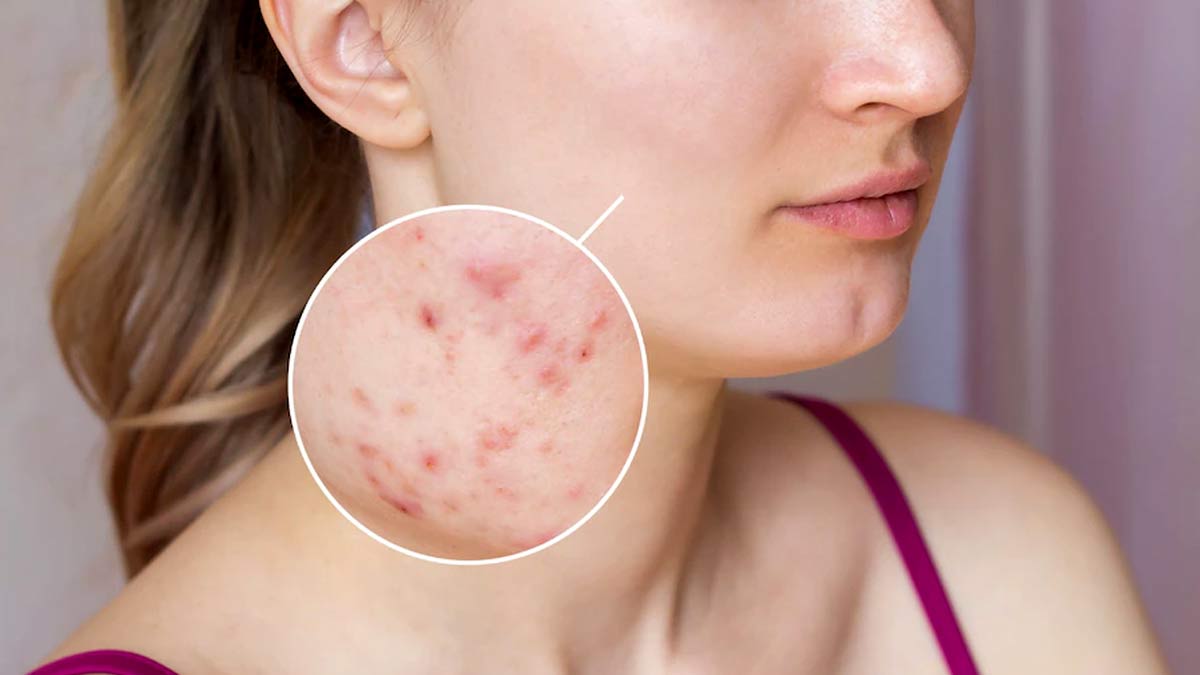
If your skin feels greasy yet tight, shiny yet flaky, you're not alone. Dehydrated oily skin is a situation that confuses many people as to what exactly their skin type is. It's a condition where your skin produces excess oil to compensate for a lack of hydration. But what are its causes, symptoms and treatment?
Table of Content:-
In an exclusive interaction with the editorial team of Onlymyhealth, Dr Sanjeev Gulati, Department of Dermatology, Sharda Hospital - Noida shared everything you need to know about why this happens and how to restore balance to your skin.
What Causes Dehydrated Oily Skin?
Dehydrated oily skin arises from both internal and external reasons including:
Over-cleansing or Harsh Soap: Taking away your natural oil balance leads to excessive oil secretion in your skin.
Environmental factors: Dry climate, cold, and low humidity and air conditioning reduce the moisture levels of the skin.

Lifestyle choices: Hydration issues, high consumption of caffeine or alcohol, and bad diet habits tend to contribute more to dehydrated oily skin.
Inappropriate Skincare Products: Utilising products that are too harsh or not appropriate for your skin type can disrupt your skin's moisture barrier.
Underlying Skin Conditions: Certain conditions, such as seborrheic dermatitis or acne, sometimes present with both oily and dehydrated skin simultaneously.
Also Read: Skincare 101: Try These DIY Hand and Nail Masks for Softer Hands This Winter
How to Identify Dehydrated Oily Skin
Dehydrated oily skin is challenging to diagnose because it demonstrates contrasting symptoms. According to Dr Gulati these signs include:
- Excessive shine, especially in the T-zone.
- Flaky or rough patches.
- Enlarged pores.
- Tight, uncomfortable sensation.
- Dull, unbalanced complexion.

How to Care for Dry Greasy Skin
Dehydrated oily skin is a challenging condition. Here is the step-by-step guide:
1. Select a Proper Cleanser
Switch to a gentle, sulfate-free cleanser that effectively eliminates dirt and oil yet doesn't strip your skin of its natural barrier. Look for hydrating ingredients, such as glycerin or ceramides, that provide essential moisture without overloading your skin.
2. Hydrate Without Overloading
Use lightweight, non-comedogenic moisturizers to hydrate your skin without clogging pores. Products containing hyaluronic acid, niacinamide, or aloe vera will help replenish hydration.
3. Add Humectants
Humectants attract water to the skin and are perfect for dehydrated skin. Humectant-containing serums include hyaluronic acid, panthenol, or glycerin.
4. Exfoliate Gently
Exfoliation can remove dead skin cells that cause flakiness, but over-exfoliating can be dehydrating. Use a gentle exfoliant containing AHAs or BHAs 1-2 times a week.
5. Protect Your Skin Barrier
Steer clear of harsh toners and alcohol-based products that can strip your skin. Use a product that repairs your barrier with ceramides, fatty acids, or squalane.
Bottomline
Frustrating as it is, it's not a life sentence for dehydrated oily skin. Understanding the causes and implementing a targeted skincare routine can help restore balance to your skin and lead you towards healthier, glowing skin. You might have to be patient while waiting for the results, but your skin will thank you for the extra care.
Also watch this video
How we keep this article up to date:
We work with experts and keep a close eye on the latest in health and wellness. Whenever there is a new research or helpful information, we update our articles with accurate and useful advice.
Current Version